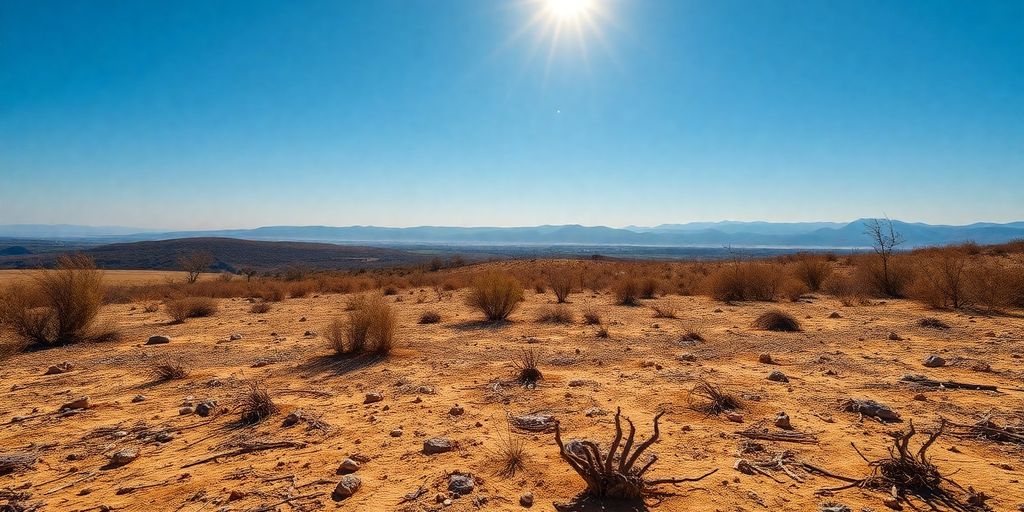The Balkans are facing unprecedented climate challenges, marked by the hottest summer in over a century. Residents across the region have reported extreme heat, drought, and devastating wildfires, raising concerns about the long-term impacts of climate change on agriculture, water supply, and public health.
Key Takeaways
- The Balkans experienced record-breaking temperatures this summer, with heat waves lasting for weeks.
- Drought conditions have led to water shortages and agricultural losses across the region.
- Meteorologists warn of potential severe winter weather following this summer’s extremes.
Record-Breaking Heat
This summer, the Balkans were subjected to relentless heat, with temperatures soaring to unprecedented levels. Residents like Jelena Popovic from Belgrade described the summer as unbearable, likening it to a tropical climate. Meteorologists noted that the region was trapped under a subtropical air mass, leading to four significant heat waves, the most intense occurring from July 5 to July 21.
In Serbia, average summer temperatures were reported to be 3.3 degrees Celsius above normal, while Slovenia recorded a 2.5-degree increase compared to pre-2020 averages. Bosnia and Croatia also reported alarming temperature spikes, with the Adriatic Sea reaching record highs.
Drought and Its Consequences
The extreme heat has resulted in severe drought conditions, drying up rivers and causing significant agricultural damage. In Serbia, many towns faced drinking water restrictions, and soldiers were deployed to deliver water to livestock in remote areas. The Rusanda salty lake, known for its therapeutic mud, dried up completely, forcing local medical centers to find alternative sources for treatment.
North Macedonia reported around 2,000 forest fires this summer, three times more than the previous year, devastating vast areas of forest. Emergency officials warned that without rain, the risk of wildfires would persist into the fall.
Impact on Agriculture and Energy
The agricultural sector has been hit hard by the drought, with crops failing and farmland scorched. In Albania, where nearly 98% of electricity is generated from hydropower, the prolonged dry spell has crippled power production, raising concerns about energy shortages.
Future Weather Predictions
Looking ahead, meteorologists are predicting a winter that could bring heavy snow and rain to the Balkans, particularly in Mediterranean areas. While this may provide some relief from the summer’s drought, the potential for severe weather raises concerns about flooding and further climate-related challenges.
Experts caution that the region must prepare for increasingly erratic weather patterns as climate change continues to impact global temperatures. The combination of human-induced climate change and natural weather phenomena like El Niño is expected to exacerbate these conditions in the coming years.
As the Balkans navigate these climate challenges, the need for sustainable practices and effective climate policies becomes more urgent. The region’s ability to adapt to these changes will be crucial in mitigating the impacts of future climate events.






